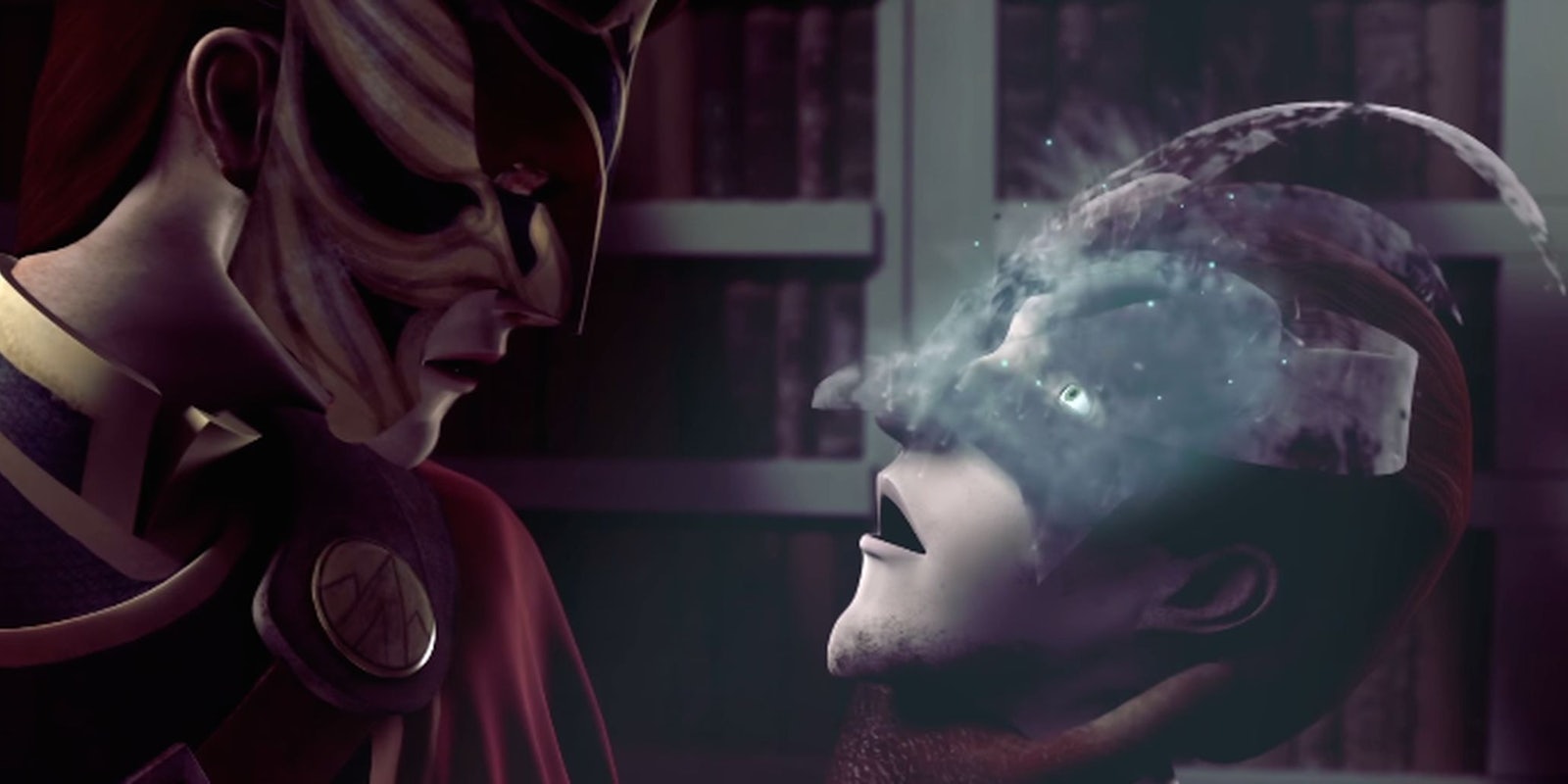Venetian-flavored role-playing game Masquerada: Songs and Shadows is blazing through the end of its Kickstarter campaign thanks to a nod from one of gaming’s coolest dudes.
Ken Levine, the man behind a little game called Bioshock, backed Masquerada earlier this week, which has hit its $64,714 goal and keeps on going.
https://twitter.com/IGLevine/status/727174811148009472
Thanks to Levine, Masquerada has gone from being the sort of gem you sadly often see in Kickstarter’s “not backed” listings to getting the attention it deserves. Actress Felicia Day has just joined the voice cast as well, further nudging a highly polished game into the spotlight.
Masquerada is a tactical action RPG that takes place in a rich universe called Ombre, cloaked in the sparkle of magic. Ancient relics in the form of masks act as magical weapons for two factions at war. You play the role of war criminal Cicero, summoned out of exile to help solve the kidnapping of a powerful diplomat.
This dark universe wasn’t originally envisioned as a video game; it was something much more physical—a Dungeons & Dragons campaign.
“The core elements of the world that Ian (Witching Hour’s creative director) created remained, but many other layers were added atop it,” scriptwriter Nicholas Chan told the Daily Dot in an email interview. “The process of fleshing out the universe is one that’s still ongoing and is one of the most thrilling and satisfying aspects of the process for me, personally.”
Chan calls Masquerada an “incredibly story-driven” game, and his favorite concept is the art that lies within it.
“In the world of Ombre, the Masquerada (the people with the masks) practice various crafts called the Media (that are basically art forms like song and dance) that allow them to better harness the elements of the world around them,” he said. “Training in the Media allows one to wield the powers of the masks with more finesse—creating a whip of fire, for example, instead of just tossing blobs of flames around.”
Magic in games is nothing new, but magic channeled through art is a beautiful and refreshing take, Chan says.
“The concept of Media really appeals to me, because it gives the arts a more tangible power than they have in reality (I’m not saying that the arts are powerless in our world, of course!—just that in the world of Ombre, their power is more manifest),” he says.
When it comes to the game development scene in Singapore, Chan says it’s making great strides.
“The local industry is young and we’re still finding our identity on the world stage, so there’s an amazing energy and excitement here right now,” he said. “We’re lucky in that the government makes it very easy for startups by giving out grants for cool projects. There are some naysayers out there that might say that Singapore and its citizens lack creativity, but that’s definitely being proven wrong with what the game developers here are doing.”


